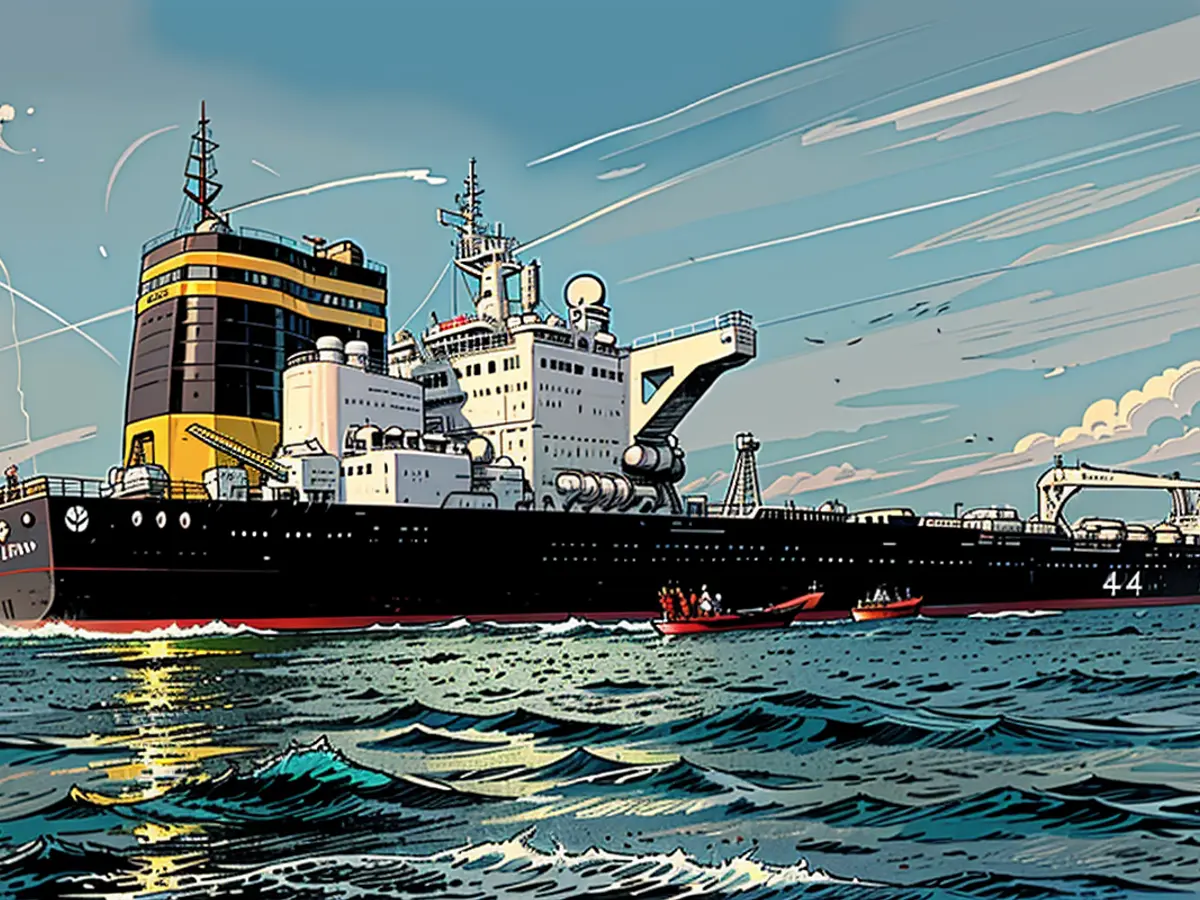Greenpeace expresses concerns about Russian cargo vessels posing a threat to the health and well-being of the Baltic Sea.
According to findings from Greenpeace, a total of 192 obsolete and often faulty oil tankers are transporting Russian crude oil around the globe. Over the past two years, 171 of these vessels have navigated through the German Baltic Sea and the Kadetrinne shipping route in Mecklenburg Bay.
These ships lack modern technology, have various technical issues, have occasionally switched off their automatic identification system, or have transferred cargo to other tankers at sea. This practice, Greenpeace reported, is particularly hazardous. These 192 vessels are said to be the most dangerous in Russia's alleged "shadow fleet."
It's worth noting that none of these ships are currently on any sanctions list. Greenpeace highlighted that in the event of an accident in Kadetrinne, north of Mecklenburg Bay, the entire German Baltic Sea coast would be endangered. Regrettably, none of the ships are sufficiently insured against the aftermath of an oil spill.
Thilo Maack, a marine biologist at Greenpeace, called for the EU to immediately add these "junk tankers" to the sanctions list, stating that prompt action is essential to avoid an impending disaster. Greenpeace's list includes various types of ships, ranging from 183 to 275 meters in length, with the oldest vessel being 27 years old and the youngest 16.
In September, Greenpeace released a report showing that since the beginning of 2021, there's been a 70% surge in crude oil tankers departing from Russia in the Baltic Sea. Coinciding with Russia's one-year mark of attacking Ukraine, approximately 1,000 oil-laden tankers from Russia have traversed the Baltic Sea coast. This equates to roughly two to three ships a day, with major recipients being India and China.
Russia has long been accused of utilizing ships not affiliated with Western shipping companies or insured by Western insurers to skirt around a Western price cap for Russian oil exports to non-EU countries. This price cap was implemented alongside a sweeping EU import ban for Russian oil.
The Baltic Sea Council, consisting of eight coastal states, has requested robust action against the shadow fleet, including tightening sanctions this year.
Greenpeace consistently advocates for these 1,000 oil-laden tankers, which have significantly increased in the Baltic Sea since September, to be added to sanctions due to their potential hazardous nature. Thilo Maack, a marine biologist from Greenpeace, strongly urged the EU to immediately sanction these "junk tankers" to prevent an impending disaster.








